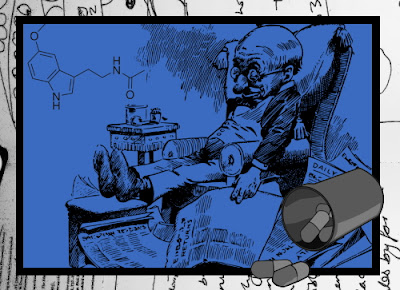Melatonin improves quantity of REM sleep and quality of sleep
Good morning!
Today’s post is just a quick link to a paper on Melatonin that I
recently came across.
Sleep in general is rather poorly understood, but in
recent years, there have been quite a few studies on the sleep hormone,
melatonin. It is probably fair to say that the idea that people can take
artificial melatonin orally to shift their body clocks and to help themselves
sleep or overcome jet lag has entered mainstream consciousness. Brand names
like “Circadin” are now pretty well known. What I did not know until stumbling
across this paper is that melatonin has been associated with an improved
quantity of REM (very deep, rapid eye movement) sleep, and not just with more
sleep as a whole. Now, when a healthy person is sleep-deprived, in general
terms, their brain alters the proportion of sleep time it spends in different
phases of sleep. Ordinarily, a very tired brain spends proportionally more time
in REM sleep and less time in lighter, alpha-wave phases of sleep. In other
words, the brain prioritises time spent in REM over time spent sleeping with
higher frequency brain waves like alpha waves. As the person becomes less sleep
deprived (for example, in the days following a bout of partying or overwork),
his/her brain adjusts its sleep pattern to reduce the time spent in REM back to
normal. Simultaneously, it adjusts the time spent in other phases (notably
increases the time spent producing alpha waves) back to normal.
Sleep with increased time spent in REM, then, is, very crudely
considered better “quality” sleep: “more densely refreshing”, as it were.
So I was very interested to learn in this paper-
-Victoria.
Footnotes.
* I am not an expert on sleep or neurology, but this is a logical
inference from the paper’s text and data.


A new item for my "things I wish I knew back in college" list. Still useful today though, even if my sleep deprivation comes from overworking rather than overpartying, so thank you :)
ReplyDelete